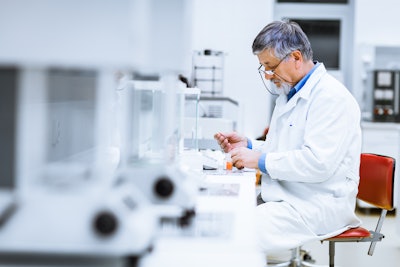
Researchers at the University of Pennsylvania School of Dental Medicine are developing hydrogels to study inflammation and ultimately enhance healing and tissue remodeling following dental restoration procedures.
The research team has created a hydrogel matrix that mimics fibrosis to study white blood cell interactions with tissue. By understanding the feedback loop between fibrotic tissue and the immune system, they hope to develop treatments for head and neck cancer, according to a press release dated July 11.
"Fibrosis is a physical change in tissues that produces a scar-like matrix that can impair cancer treatment, inhibit healing, and in general is not compatible with tissue regeneration," Kyle Vining, assistant professor of preventive and restorative sciences at the university, said in the release.
Recently, hydrogels, water-based gels with diverse biomedical applications, have become a major focus in bioengineering research, transforming the study and potential treatment of diseases. The team is developing hydrogels to study inflammation, specifically investigating how physical cues control the inflammation of white blood cells, according to the release.
The goal is to develop new treatments for diseases resulting from chronic inflammatory conditions. By gaining a deeper understanding of the interaction between fibrotic tissue and the immune system, they hope to create interventions to treat head and neck cancer and enhance the efficacy of immunotherapies.
Additionally, they are working on expanding treatments for tooth decay. They are developing methods to encapsulate mRNA in lipid nanoparticles for targeted delivery to dental tissues, according to the release.
"While there has been significant effort in developing antifibrotic drugs, our approach is different," Vining said. "We aim to understand the impact of fibrosis on the immune system, because it can be manipulated to become harmful to tissues."




















